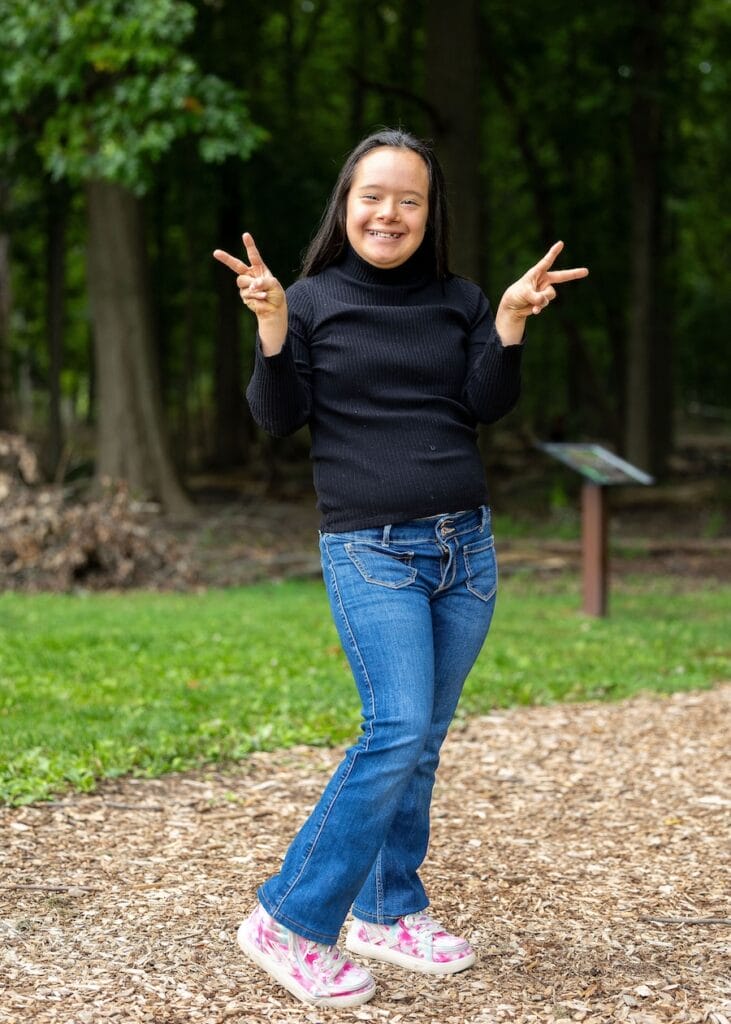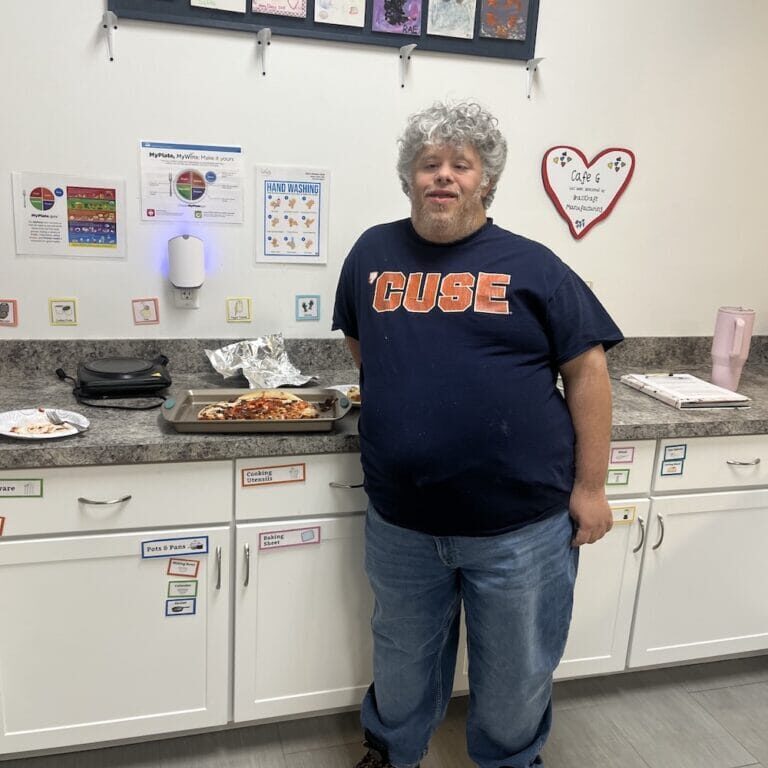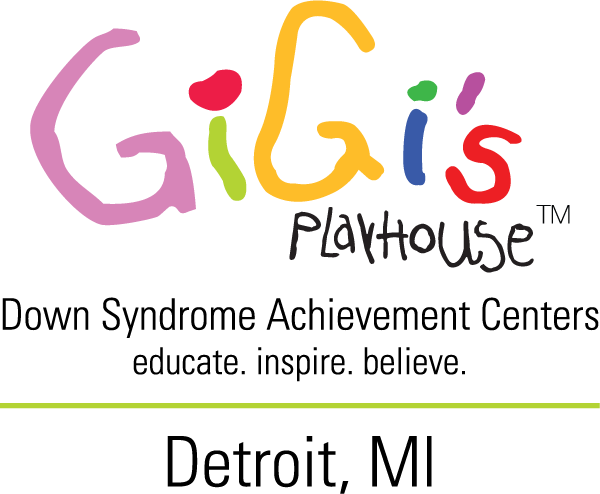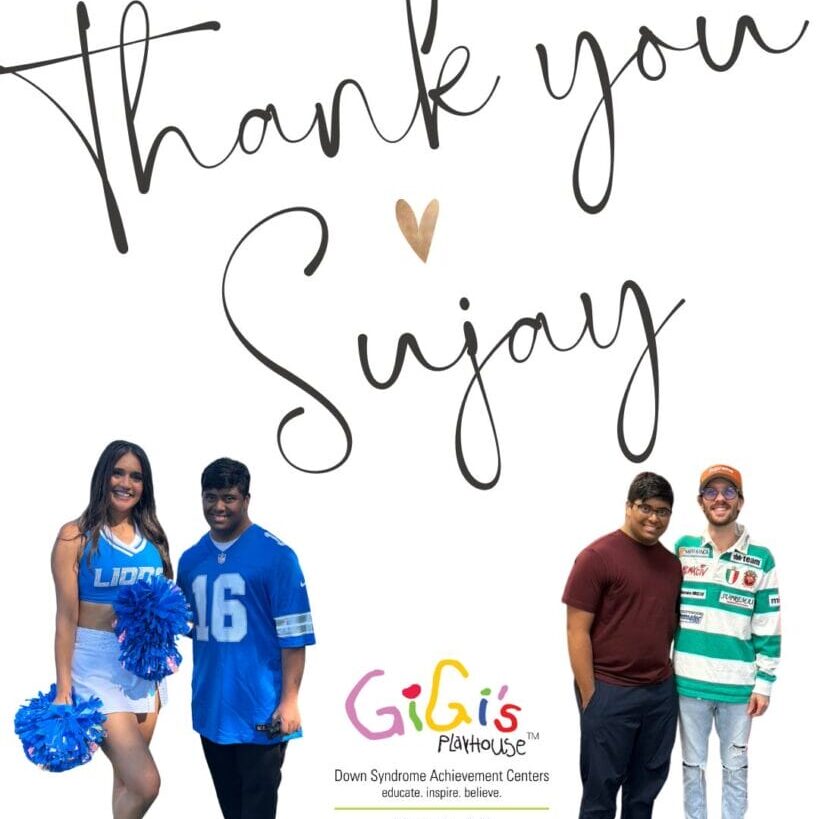Myths & Truths About Down Syndrome

There are lots of popular myths about individuals with Down syndrome that are problematic for many reasons, most of which are related to not seeing their full humanity. Don’t worry, we’re here to debunk those myths, and we hope you’ll help us spread the word! The list below was put together by the National Down Syndrome Society, which is an incredible resource worth checking out! At the end of this post we’ve linked some downloadable fact sheets you can print and distribute as needed.
MYTH: Down syndrome is a rare disorder.
TRUTH: Down syndrome is the most commonly occurring chromosomal condition. Approximately one in every 772 babies in the United States is born with Down syndrome, or around 5,100 births per year.
MYTH: Down syndrome is hereditary and runs in families.
TRUTH: Translocation, a type of Down syndrome that accounts for 3 to 4% of all cases, is the only type of Down syndrome known to have a hereditary component. Of those, one third (or 1% of all cases of Down syndrome) are hereditary.



MYTH: Most babies with Down syndrome are born to older parents.
TRUTH: Most children with Down syndrome are born to women younger than 35 years old, simply because younger women have more children. However, the likelihood of having a child with Down syndrome increases with the age of the mother, especially after age 35.
MYTH: Parents will not find community while raising a child with Down syndrome.
TRUTH: In almost every community of the United States there are parent support groups and other community organizations directly involved in providing services to families of individuals with Down syndrome. There are currently 59 GiGi’s Playhouses throughout the United States and Mexico. Our Detroit location has a very strong community of friendship, support, and resources.
MYTH: All people with Down syndrome have a severe cognitive disorder.
TRUTH: Most people with Down syndrome have a mild to moderate cognitive disability, or intellectual disability. This is not indicative of the many strengths and talents that each individual possesses. Be considerate of the extra time it might take a person who has a disability to get things done or said.

MYTH: People with Down syndrome are always sick.
TRUTH: People with Down syndrome are at an increased risk for certain medical conditions such as congenital heart defects, respiratory, hearing problems, and thyroid conditions. Advances in health care and treatment of these conditions have allowed most individuals with Down syndrome to lead long, healthy lives.
Scientists know everything there is to know about Down syndrome.
TRUTH: Though we know that an extra full or partial copy of chromosome 21 causes the characteristics of Down syndrome, researchers are making great strides in identifying how individual genes on chromosome 21 affect a person with Down syndrome. Scientists now feel strongly that it will be possible to improve, correct, or prevent many of the health problems associated with Down syndrome in the future.
MYTH: Segregated Special Education programs are the only options for students with Down syndrome.
TRUTH: Students with Down syndrome are included in typical academic classrooms in schools across the country. The current trend in education is for full inclusion in social and educational settings. Sometimes students with Down syndrome are included in specific courses, while in other situations students are fully included in the typical classroom for all subjects. Increasingly, individuals with Down syndrome graduate from high school with diplomas, and participate in postsecondary academic and college programs.


MYTH: People with Down syndrome are always happy.
TRUTH: People with Down syndrome have feelings just like anyone else. They experience the full range of emotions. They respond to positive expressions of friendship and are hurt and upset by inconsiderate behavior.
MYTH: People with Down syndrome cannot be active members in their communities.
TRUTH: People with Down syndrome are active participants in educational, social and recreational activities. They are included in the typical education system and take part in sports, music, art programs and any other activities in the community. People with Down syndrome are valued members of their families and communities, and make meaningful contributions to society.


MYTH: Adults with Down syndrome are the same as children.
TRUTH: Adults with Down syndrome are not children, and should not be considered children. They enjoy activities and companionship with other adults, and have similar needs and feelings as their typical peers.
MYTH: Adults with Down syndrome are unable to form close interpersonal relationships resulting in marriage.
TRUTH: People with Down syndrome socialize and have meaningful friendships. Some choose to date, maintain ongoing relationships, and marry.
MYTH: Adults with Down syndrome are unemployable.
TRUTH: Businesses employ adults with Down syndrome for a variety of positions – in banks, corporations, hotels, hospitals, nursing homes, offices and restaurants. They work in the music and entertainment industry, in clerical positions, childcare, the sports field and the computer industry, to name a few. Like anybody else, people with Down syndrome want to have a job where their work will be valued.



MYTH: It’s okay to use the “r” word if you don’t really mean it.
TRUTH: It is never acceptable to use the word “retarded” in any derogatory context. Using this word is hurtful and suggests that people with disabilities are not competent.
Thank you to The National Down Syndrome Society for putting together these downloadable Fact Sheets. Just click the links to read, print and distribute:
Down Syndrome Fact Sheet in English
Hoja Informativa Sobre El Síndrome De Down en Español
Recent Posts



